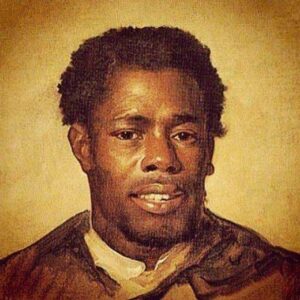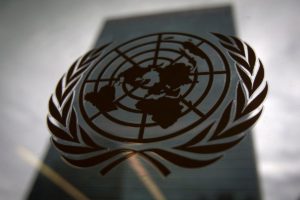The costs of COVID quarantine and visa issues are preventing Indigenous climate activists from attending COP26 at the United Nations.
Want the best of VICE News straight to your inbox? Sign up here.
Indigenous peoples comprise less than 5 percent of the world’s population but protect 80 percent of its biodiversity. But COVID and immigration restrictions are making it nearly impossible for some communities to attend COP26, the United Nations’ annual climate change conference.
Xiye Bastida, 19, a prominent youth activist of the Otomi-Toltec indigenous people in Mexico, was looking forward to speaking at the conference, held this year in Glasgow starting Oct. 31. But she won’t be able to go as she had wished, as a member of the Mexican delegation, where she could have been involved in conversations with decision-makers. While many other countries opened up spots to members of the public, she said the UN focal point in Mexico, which organises the COP26 delegation, couldn’t help her.
Bastida only found access to the conference by approaching various NGOs, which can get a small number of badges for their roles as “observers.” She also showed VICE World News a video featuring the confirmed list of Mexican delegates, which included a representative from CEMEX, a cement company.
“Why did Mexico bring a cement person when I asked them as a youth activist to get a badge to COP and they said we can’t because you might not represent their interests?” Bastida said.
To attend COP, Indigenous activists often have to navigate the idiosyncrasies of their local governments. But this year, they’ve also met a variety of COVID-19 restrictions on top of strict immigration rules from the British government hosting the climate conference this year. Whether they’re missing a visa, a delegate badge, or simply thousands of pounds to handle costly quarantine costs, many activists won’t make it to COP26 as planned—or will simply head there without delegate badges, which allow them access to politicians, in hopes that they can still exert some influence.
Minga Indígena, a collective of Indigenous peoples from across different countries and communities who have mobilised to fight for Indigenous rights, believe that much more should have been done to get them to COP.
In a letter to British MP Alok Sharma this month, the collective wrote that expecting Indigenous participants who don’t normally deal with technology, might not be used to closed spaces, and don’t speak the local language, to go through 10 days of quarantine if they haven’t been vaccinated is “detrimental in economic, cultural and emotional terms.” And many of those populations likely haven’t been inoculated given the vaccine inequality, especially in Latin America.
Sharma has yet to reply to the letter, but he previously said, “I have always been very clear that this should be the most inclusive COP ever.”
In a recent press conference, the UN Secretary General António Guterres also addressed the issue. When VICE World News raised the concerns of the indigenous activists that many would be unable to attend, he said, “There are several limitations in relation to this COP because of COVID. I would like to see communities strongly represented. I will check to see if there is still something we can do.”
In 2018, Mexico had the world’s 11th largest greenhouse gas emissions and, in recent years, has invested heavily in fossil fuels. Nashielli Valencia, a Zapotec indigenous activist who is currently working to fight the development of industrial plants in Oaxaca, hoped to attend COP to talk about that.
Valencia was able to get a visa to the UK—but not a delegate badge. That means she can’t enter the “Blue Zone,” where only politicians and decision-makers are allowed. But she still plans to help with events in the “Green Zone,” an area open to the public, just outside the more restricted area.
“The Mexican government denied me accreditation,” she said. “They don’t want our voice, just the voice of the government there.”
Camila Zepeda, the director general for global affairs at Mexican Ministry of Foreign Affairs who’s in-charge of the country’s UN focal point for COP26, told VICE World News that those who are unaccredited and criticised the government applied after the delegation had already been finalised.
“On the contrary, the Mexican delegation is plural and includes representatives from all sectors of society,” including from public administration, local authorities, legislation, civil society, the private sector and the youth,” she said.
“Why did Mexico bring a cement person when I asked them as a youth activist to get a badge to COP and they said we can’t because you might not represent their interests?”
She added that in accordance with Mexico’s rules around the involvement of civil society in foreign affairs, the ministry co-ordinated with NGOs to invite their limit of five people at a meeting in September; in the list provided, none of the five NGOs allowed into the selection meeting have a focus on indigenous issues.
Across the Global South, many activists are also experiencing visa issues. Haitian delegate Djivenson Macius represents several sustainability-related organisations in the country, which has been left with only 3 percent of forest cover due to mast deforestation that makes it vulnerable to earthquakes and severe storms.
But Macius has no visa because Haiti doesn’t have a visa application centre. Nationals are required to travel to the Dominican Republic to complete an application, where authorities permit only a limited number of Haitian nationals to enter.
“I experience the harmful effects of climate change on a daily basis. And being part of this vulnerable community, I have always expressed my interest in attending a COP,” Macius said.
The COP26 visa service, based in Scotland, helps to triage visa and delegate applications as well as navigate COVID restrictions for individuals around the globe. The group has tried to get Macius to COP.
“We’ve spoken to the UK government who view this as a matter for the governments of Haiti and the Dominican Republic,” said Rachael Osgood, a 21-year-old student who spearheads the staff of five that operates the service. “The road to COP26 is broken,” she told VICE World News.
While thorny visa or local government complications can be common for COP attendees, COVID-19 will, for many, be the ultimate reason they cannot attend the conference.
“Many of us will not be in the high level discussions this year especially because of the pandemic and the scarcity of vaccines to indigenous peoples,” said Milka Chepkorir, who has been working for years for the recognition of land rights for the Sengwer, an Indigenous community that primarily lives in the Embobut forest in the western highlands of Kenya.
“Governments and most influential stakeholders are yet to accept the reality. The reality of the place and role of Indigenous people in the climate justice process.”
A third of Pacific Islands are not planning to send any government figures to COP26 because they couldn’t afford the time required in quarantine, according to a Guardian report last week. Most Pacific countries actually managed to remain Covid-free because they closed their borders to international travel during the pandemic; leaving to travel could mean up to a month of costly hotel stays.
Lavetanalagi Seru, a Fijian leader from the Pacific Islands Climate Action Network (PICAN), said that COP26 had proved “near impossible to attend” for activists and campaigners.” He adds that this is crucial for such conferences, where activists provide support to Pacific small island developing states. “Where we have smaller delegations, leaders are unable to be in all the rooms at once, so this is where civil society steps in and covers some of the meetings.”
Jade Begay, a Diné and Tesuque Pueblo of New Mexico climate justice campaigner, knows that she is privileged to have a U.S. passport that has helped her easily get a visa to travel. She has been in several large caucus calls where she’s heard from communities around the globe who have decided not to go to COP26. At this point, she’s skeptical of what the UN could do to fix that; even activists who may have recently secured badges or visas will not have enough time to find supportive funding to help them attend.
“So a lot of these frontline communities from the global South or anywhere across the world, it’s really hard to take care of those costs up front and wait weeks or months to receive a stipend,” she explained.
“Countries and the UN should have been implementing these solutions a year ago.”




